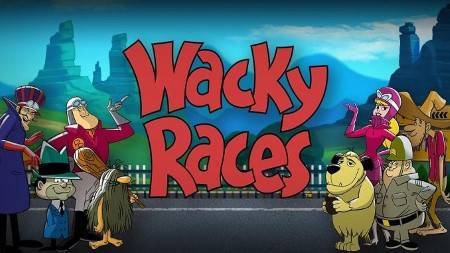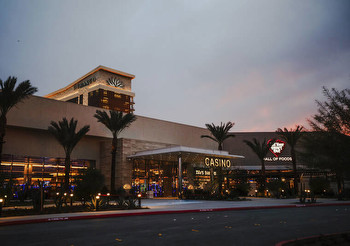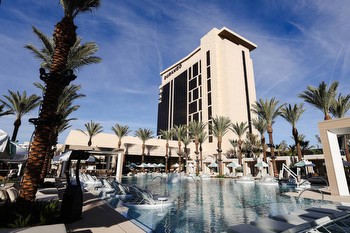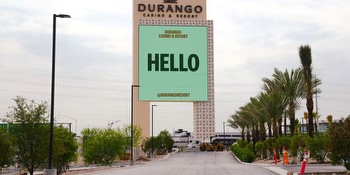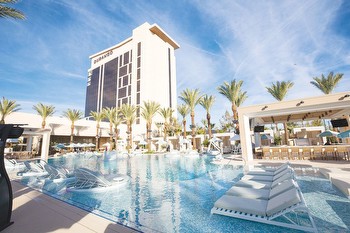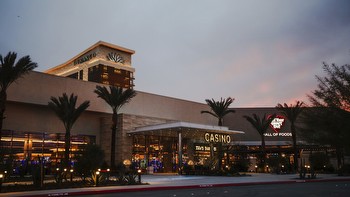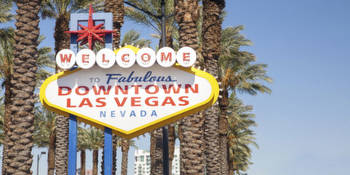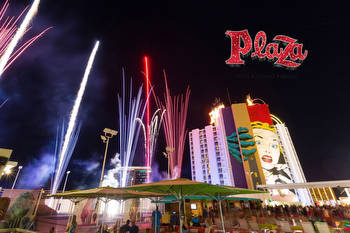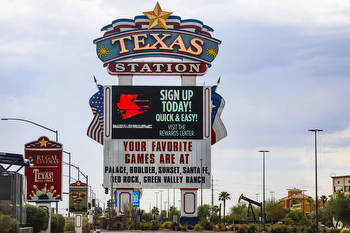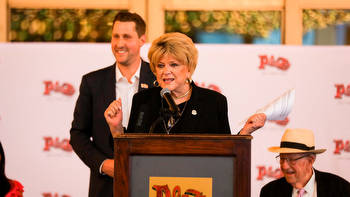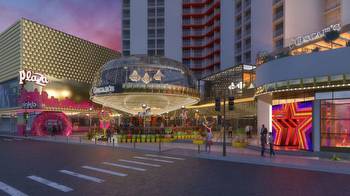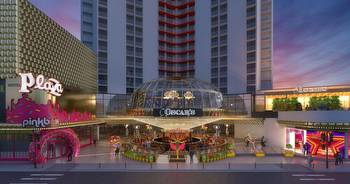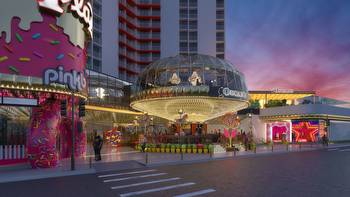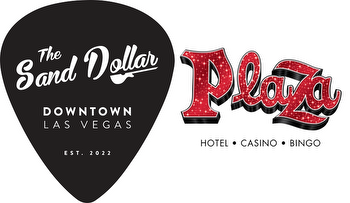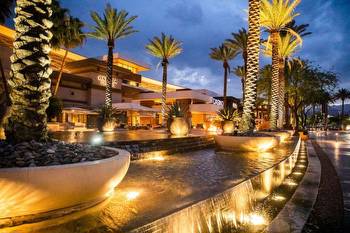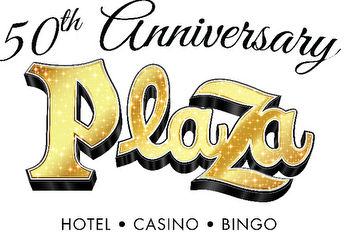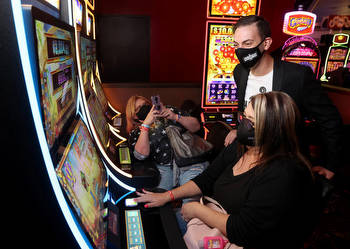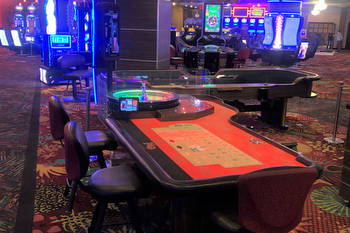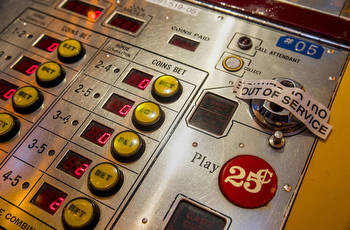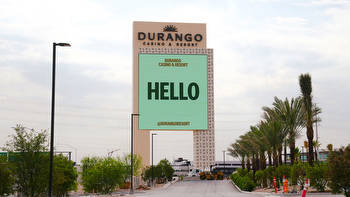Las Vegas casinos move away from live keno lounges
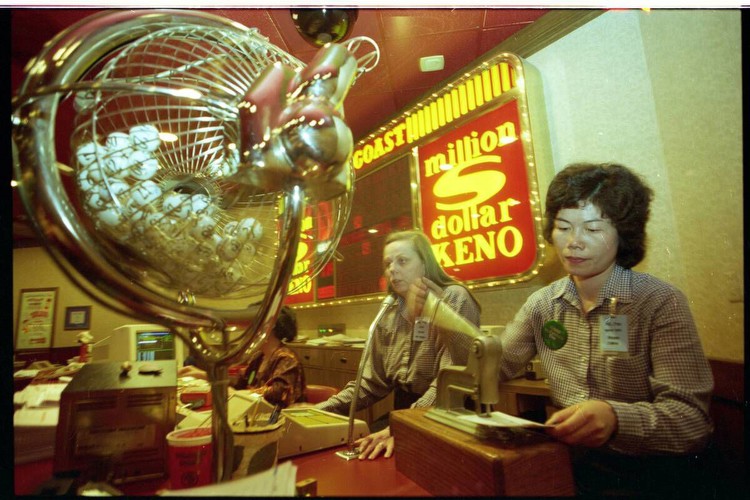
A recent closure of one of the last live keno lounges on the Strip has shed light on casino operators’ shifting business approach to the game.
There are dwindling options for a live keno lounge player. On the Strip, Caesars Entertainment ended lounge operations at Harrah’s in mid-November, telling guests to play at Horseshoe resort-casino.
Downtown has fewer live places to play as well. Recent years have seen the closure of lounges at multiple downtown properties like El Cortez and Fremont. Even Station Casinos, which operates several of the remaining lounges in the Las Vegas Valley, did not build one into its newest resort, Durango.
In Clark County, there were 16 keno locations licensed in October, according to the most recently available data from the state’s Gaming Control Board — a 69 percent decrease from the same time five years ago.
Caesars Entertainment did not respond to a request for comment on its decision to close the Harrah’s lounge. Neither did Station Casinos about its keno lounge model and the decision to not build one in Durango.
A slow pace, lottery-like game, Keno tends to have a strong house edge. Casinos won about 32 percent of the time in October, according to the most recently available data from the state’s Gaming Control Board. Video keno games generate more revenue for operators because there are more machine units to play on and the play-through moves significantly faster.
Some of the last remaining operators say the choice to keep the lounge instead of converting the casino floor space is a deliberate one. Declining interest and an aging target gambler may have been behind the multi-year decline. The COVID-19 pandemic also affected the lounges as some long-time players died from the virus and others avoided traveling.
Mike Palm, vice president of operations for The D, Golden Gate and Circa casinos in downtown Las Vegas, said the live lounges are labor intensive, similar to poker rooms. He said video keno across all three properties does 5-time the revenue compared to The D’s lounge.
“Unless you’re very successful, it doesn’t make sense to keep them,” Palm said. “They take up X amount of casino space that could go into machines that have a lower overhead costs. All the labor becomes a big factor as the costs continue to just skyrocket every year. So unless you have a very compelling product, it can’t just be an amenity anymore because they don’t make sense financially just as an amenity.”
That’s what The D focuses on, he said. The live keno lounge has been a staple at the property for decades — as far back as the early 1990s while the property was still known as Fitzgeralds.
Palm’s staff runs a quarterly keno tournament that helps keep the lounge afloat. The tournaments typically run around the Super Bowl in February, Kentucky Derby in May, mid-August and mid-October and draw in between 40 to 65 players. More frequent tournaments would likely dilute the prize pool, he said.
“They’re only four out of the 52 weekends a year, but they generate close to 50 percent of the revenue that we do in the live keno lounge,” Palm said.
At the Plaza hotel-casino, the live keno lounge has come and gone over the years, CEO Jonathan Jossel said. He and staff brought it back in the last decade as a complement to the property’s bingo room, the only one downtown.
“I think it speaks to being a comprehensive property in terms of having all the offerings that you could want,” Jossel said. “It’s what you need to have if you want to be all-inclusive of gaming.”
The Plaza keeps the operation small — two people working to cover the space that has eight to 10 seats. The lounge is overseen by the same department as its bingo hall, creating efficiencies, Jossel said.
He’s not concerned about an aging player demographic. Bingo and keno players often tell casino staff that they didn’t play the games when they were younger and instead found them later in life.
“As people’s tastes evolve, they discover new things that they like to do and this fits into that same category,” Jossel said.
McKenna Ross is a corps member with Report for America, a national service program that places journalists into local newsrooms. Contact her at mross@reviewjournal.com. Follow @mckenna_ross_ on X.







